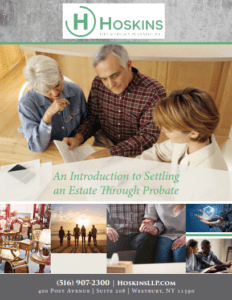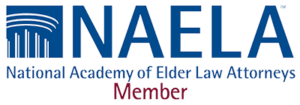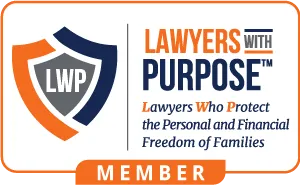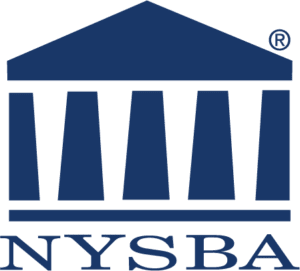

Avoiding Probate
Probate can be a long, expensive, and frustrating process. It is also a matter of public record: anyone can obtain information about the decedent’s finances and debts, for example. For these and other reasons, many people seek to avoid the prospect of their estates being probated, and there are a number of ways to accomplish this.
Joint Tenancy and Tenancy by the Entirety
By naming another individual as a joint owner or “joint tenant with rights of survivorship,” your property can pass to the named person without probate. However, taking this approach subjects your assets to any claims made against the joint owner. If this happens while you are alive, it could be a financial disaster.
Beneficiary Designations
In New York, Transfer on Death (TOD) or Pay on Death (POD) beneficiary designations can be added to bank accounts. Beneficiary designations such as these are preferable to joint tenancy because they let you transfer property at your death without sacrificing sole ownership of them while you are alive. Unfortunately, TODs and PODs can complicate the equitable distribution of assets and, if you’re not careful, undermine the stipulations made in your will.
Revocable Living Trust
A revocable living trust allows you to create a separate entity (the trust) to “hold” title to your assets while you are alive and name a person of your choosing (the trustee) to manage the assets according to the terms you delineate in the trust. As the maker of the trust, you can serve as the trustee while you are alive. Upon your disability or death, the individual you chose as your successor trustee will continues to manage or distribute the trust’s assets. A properly drafted and implemented trust can accomplish many goals, including probate avoidance, streamlining the distribution of assets, and protecting your heirs’ inheritances against divorce and/or creditors.
Estate Planning Firm Serving NYC and Long Island Communities
While trusts are powerful estate planning tools, they must be properly administered. This can include the notification of beneficiaries; the gathering, valuation, and management of assets; notification of creditors; payment of debts, final expenses, and taxes; and the distribution of remaining trust assets to heirs according to the mandates of the trust. Accomplishing all of this takes a great deal of time, and the successor trustee can be held responsible for failing to administer the trust properly.
Contact an Experienced New York Probate, Trust, and Estate Administration Attorney
Whether you are faced with the prospect of settling an estate through probate or administering a trust, we can guide you every step of the way. You are not alone during this difficult time. We invite you to contact us at your earliest convenience for a personal meeting to discuss your needs and goals.


Contact Us Today to Discuss Your Plan
Download your FREE Introduction to Settling an Estate Through Probate booklet


Related Blogs
-
5 Life Events That Should Prompt an Updated Estate Plan
Working with an estate planner provides the chance to create a comprehensive plan that addresses your needs at that point in time. It may be the case that your plan continues to serve your needs for years to come, but
-
The Biggest Mistakes People Make When Probating an Estate
Losing a loved one is difficult enough without the added stress of having to make important financial decisions while grieving. For many people, the duties and responsibilities of probating a loved one’s estate can feel overwhelming. The probate process is
-
Estate Planning Fundamentals
Clients often ask us about the estate planning tools we use and what each of them can accomplish. Here is a list of the most commonly used tools and brief descriptions of their purpose.












